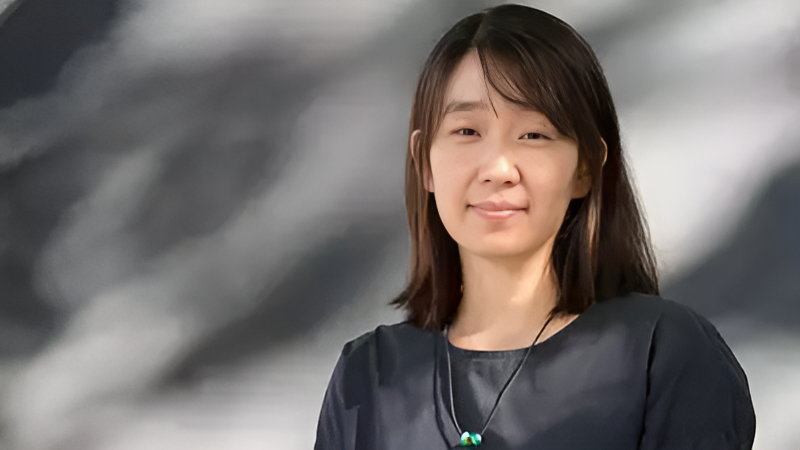Han Kang: A Literary Trailblazer and Nobel Laureate
Introduction
The award-winning South Korean author, Han Kang, is indeed a new wave writer whose works comprise great literature in the themes of trauma, identity, and human condition. Born in Gwangju on 27 November 1970, she is known for her outstanding voice. And in total, she has received many awards. Including the 2024 Nobel Prize in Literature, which is the first time ever that someone of South Korean stock and the first female Asian winner of the Nobel Prize in Literature has received the prize. This paper traces through Han Kang’s early life, her literary career and major themes, and international recognition to trace to her distinction and significant contributions to contemporary literature.
Early Life and Influences of Han Kang
The author grew up in a literary family – her father being a novelist, siblings who were writers too, and so on. And books surrounded Han Kang at an early age. That literary background meant love for storytelling was instilled, and she received the kind of nurturing environment with which to grow into. But important historical events did occur at an early age, specifically the Gwangju Uprising of 1980. This event-a pro-democracy uprising-ends with a tragic military massacre of the students and civilians involved, which impacts Han Kang’s way of understanding the world in a deep manner.
At 12, she came across a memorial album on the Gwangju Uprising, which nurtured her interest in the human suffering complex and provided evidence of resilience. From this moment on, Han Kang was infused with a passion that would fill her writings about the depth of human emotions. Han Kang continued with Korean language and literature studies at Yonsei University, then went on to the International Writing Program at the University of Iowa. These formative experiences would quite deeply impact her poignant style of narration.
Literary Career of Han Kang
Since 1993, however, Han Kang has written a string of excellent works, with poems initially appearing in the literary magazine. In 1995, she produced her first collection of stories, A Love of Yeosu, which received critical acclaim and proved a fabulously complicated storytelling ability. With The Vegetarian, completed in 2007, however, Han Kang finally achieved international success. It has ended up being a meditation on the ideas of personal autonomy and societal confluence, because as she delves into the life of a woman who chooses not to eat meat, she dismantles the traditional notions of gender and identity around her.
The fame The Vegetarian garnered proved to be momentous; after all, it was the first Korean novel to win the International Booker Prize in 2016. This achievement actually catapulted Han Kang into global prominence within literary circles and also threw open the doors of international recognition for Korean literature. Success with The Vegetarian seemed to open the gates for even more stunning works from her: Human Acts (2016), a heart-rending account of the Gwangju Uprising, and The White Book (2017), poignant reflection on loss and memory.
We Do Not Part is the title of a novel by Han Kang published in 2021. Books often times weave into historical events people’s personal lives, but that is not what marks Han Kang’s writing. Greek Lessons is her latest work and was translated into English in 2023. It seals yet another vital voice into the totality of great literature.
Themes and Style
Common themes that characterise Han Kang’s works are the issues of human existence, such as historical trauma and personal loss, conveyed with sensitivity and depth. Her unique narrative style has the qualities of poetic prose and stark realism so that readers simply ponder just how fragile life is. Critics have been able to describe how author Han Kang is able to show deep emotional responses for her works based on identity, memory, and the human condition.
Another prominent theme that Han Kang gets fixated with is the human body vis–vis society. For example, in The Vegetarian, her protagonist’s decision not to eat meat is a rather radical defiance of the societal expectations made on her, symbolizing an individual’s want for liberation in a repressive society. Again, while examining the physical and psychological trauma caused by the Gwangju Uprising in Human Acts, readers are confronted with the harsh truths of violence and suffering.
It is a character of Han Kang’s works that, in attempting to raise questions, she leaves the reader with more questions than answers. Such complexity is what makes Han Kang’s writings extremely close to people’s hearts all over the globe.
Han Kang: Writer and Innovator
The work of the writer Han Kang stands out in thematic explorations; however, while at the same time, her innovative use of narrative techniques makes her writing stand out. Weaving in multiple perspectives and timelines that keep shifting creates a rich tapestry of experiences that pull readers into her world. Han Kang’s storytelling thus challenges the traditional forms of narration, demanding that the reader intervene on a more immersive level with the text. Her use of imagery and metaphor skillfully elevates her stories to meditations upon existence rather than just plots.
More importantly, representation of Han Kang through marginalized voices and her focus on social issues resonate very well with the global audience. As a writer, she stands to become a voice for the unheard through many elements in which, among others, themes of gender inequality, political oppression, and the identity struggle among individuals with collective society take center stage among the issues she canvasses. This engagement of hot social issues actually makes her work not only relevant but crucial to contemporary discourse.
Awards and Recognition
Han Kang states as one of the greats has been further cemented by the many honors she has received throughout the years for her literary success. Her awards include:
- 1999: Korean Novel Award for Baby Buddha
- 2000: Today’s Young Artist Award from the Korean Ministry of Culture
- 2005: Yi Sang Literary Award for Mongolian Mark
- 2010: Dongri Literary Award for The Wind is Blowing
- 2016: International Booker Prize for The Vegetarian
- 2017: Premio Malaparte for Human Acts
- 2018: Shortlisted for the International Booker Prize for The White Book
- 2024: Nobel Prize in Literature for her intense poetic prose that confronts historical traumas and exposes the daintiness of human life.
In fact, her acknowledgment reaches beyond the literary circles to reaffirm Han Kang’s importance as a voice of modern Korean literature worldwide. To add to that, literary awards aside, Han Kang was elected an International Writer of the Royal Society of Literature in 2023.
Personal Life
Han Kang has also experienced personal challenges in life; among them, she suffers periodic migraines, which forms a humbling aspect of her life. Earlier, she got married to literary critic Hong Yong-hee, and she had a son. Since 2018, she has run a bookstore in Seoul-a platform from which she promotes literature and seeks to identify with the community. This is yet another way of reflecting her passion for books, but further develops the practices of fostering literature within her home country.
Han Kang: Impact and Legacy
Beyond the remarkable literary merit and awards associated with her work, Han Kang has become a national icon of South Korean culture and an integral part of global literature. Through Han Kang’s works, this reader is confronted with the uncomfortable truth about history, identity, and human rights so that one may better understand issues with society. The connection between personal and collective trauma allows Han Kang to engage her audience in empathy and reflection. She leaves behind a legacy as one of the pioneering figures in contemporary literature and continues to write, engaging readers worldwide. Through her works, she is not only enhancing Korean literature but also blending the powerful voices of those silenced in the past, where their stories can transcend the barriers of culture and time.
Conclusion
This is a great journey from the time when Han Kang was that traumatized girl to the world-acclaimed author. Be it her distinct voice still ringing across the globe to make her the surely central figure in contemporary literature, Han Kang’s voice shall surely inspire all subsequent generations to write as well as read more of the same. As she basks in her newfound role as Nobel laureate, Han Kang’s voice shall surely inspire more generations of writing and reading alike.







